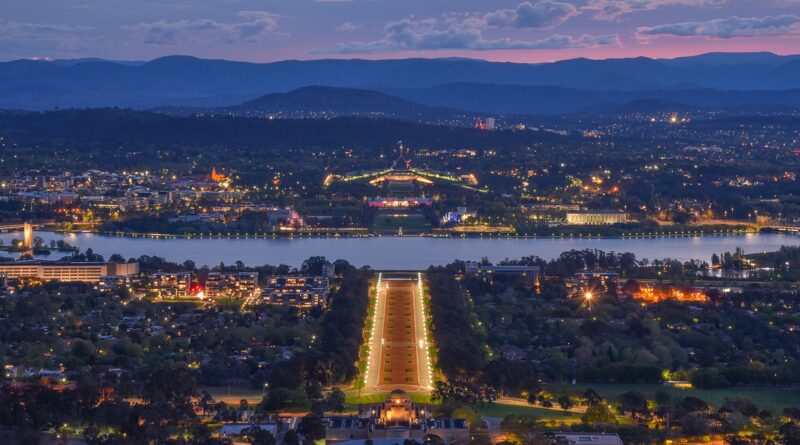View from The Hill: Barnaby Joyce keeps his political hands clean on the road to net zero target
The line from Scott Morrison’s office that he’s “more likely than not” to attend what Prince Charles dubs a “last chance saloon” (Aka COP26) reflects the PM’s apparent confidence he’ll be able to secure an agreement from those pesky Nationals.
Despite there being several steps ahead to tie down that “net zero” deal, Morrison has been sounding like a man convinced he’s unstoppable.
“My government will come together on this issue,” he declared on Monday. One way or another, is the vibe.
As one Nationals source put it, either the Nationals agree, or they’ll be run over.
But “running over” the Coalition’s minor partner can be as risky as driving a car over a heap of nails. It doesn’t leave the tyres in the best of shape.
The climate policy is due to be discussed by cabinet on Wednesday, ahead of a Nationals party meeting on Sunday.
Nationals sources stress that whatever comes to the cabinet meeting is not something that is owned or authored by Joyce. At this moment there is not yet any “deal”.
The cabinet would not be making a final decision but having Joyce put something to his party, these sources say.
Victorian Nationals Darren Chester (who has been taking time out from the party room) told the ABC on Tuesday that three months ago “Barnaby Joyce said there was zero chance that the Nationals would support a net zero target – now I would say there’s about a 95% chance.
“I think there’s a lot of support and I know many colleagues in the room, who’ve spoken to me privately, [are] making the point that they understand we need a credible position on this issue,” Chester said.
“Despite all his other faults, Barnaby Joyce can count, and he can count the majority of the room is in favour of credible action on climate change.”
While Chester’s assessment of the numbers seems accurate, some Nationals are antsy.
This goes beyond the likes of Queensland senator Matt Canavan and resources minister Keith Pitt.
Canavan will never change his trenchant opposition to the net zero target. On Tuesday, appearing on Sky, he was condemning it as meaning “big government is put in charge” of individuals’ lives – what cars they drove, even what they ate.
Read more: Climate finance: rich countries aren’t meeting aid targets – could legal action force them?
Pitt, who has been sceptical of a net zero commitment, faces being in an awkward position – as a minister (though not in cabinet) – if he has to sell a firm embrace of that target.
On Tuesday Pitt was visiting the Adani coal mine in Queensland.
Joyce is aware he must tread very carefully with his colleagues. While he appears to be leading his party to a place it never thought it would go, he casts himself as the follower.
Pressed on Tuesday night on whether he as Nationals leader supported a net zero by 2050 target, he resorted to a cute line, telling the ABC, “I don’t support it without the support of my colleagues”.
Read more: Politics with Michelle Grattan: A prime minister, a prince and the ‘last chance saloon’.
Despite Joyce’s genuflecting to the party room, some Nationals feel they are being steamrolled, or are confused as various senior figures run positions in the media.
For example, what were they to make of the party’s Senate leader Bridget McKenzie’s opinion piece on Monday? In it she advocated a mechanism to enable Australia “to conditionally tie emissions reductions to positive regional socio-economic outcomes. If these were not being achieved, Australia would pause its climate plan rollout”.
Some Nationals wondered whether this was part of a government deal. McKenzie’s office quickly said it wasn’t Nationals policy, but insisted it was not a thought bubble either.
It’s clear a deal will be laden with sweeteners for the Nationals and protections too.
But if there are too many caveats, they will diminish the quality of the policy.
The deal the government reaches (assuming it gets there) needs to be strong enough in its ambition (including for the medium term) to be credible at Glasgow, and in the “leafy” electorates, but also able to be sold by the Nationals in their Queensland seats.
Morrison will be owning the climate part, while Joyce will be looking to the bag of benefits for the regions.
The deal has to work for both of them.
While Morrison is at the G20 and Glasgow – assuming he goes – Joyce will be acting prime minister. The last thing Morrison needs is a spooked Joyce putting his own distinctive spin on the climate policy.
![]()
Michelle Grattan does not work for, consult, own shares in or receive funding from any company or organisation that would benefit from this article, and has disclosed no relevant affiliations beyond their academic appointment.

